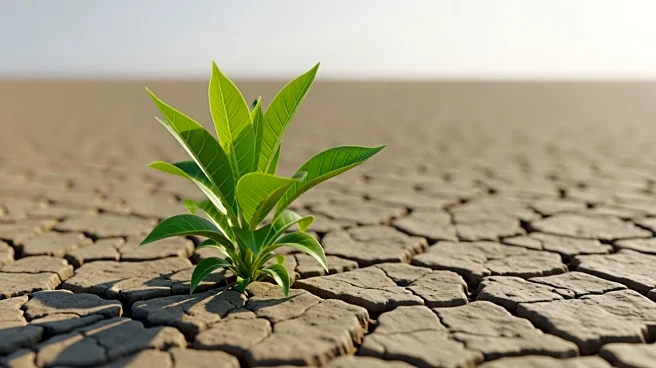What's Happening?
The Global Land Initiative, under the auspices of the G20, has made significant strides in addressing land degradation and promoting restoration efforts worldwide. In 2024, the initiative focused on scaling
up land restoration, with the European Union passing a new Restoration Law mandating quantitative targets. The initiative, in collaboration with the International Union for Conservation of Nature, has compiled a database on global restoration commitments, with 30 countries pledging to restore over 10 million hectares each. The UNCCD published a report highlighting the private sector's role in land restoration, projecting the restoration economy to grow to $70 billion by 2031. The initiative also launched the Global Ecopreneurs Program, training young entrepreneurs in restoration startups.
Why It's Important?
The Global Land Initiative's efforts are crucial in combating land degradation, biodiversity loss, and climate change. By fostering international cooperation and private sector involvement, the initiative aims to create green jobs and stimulate economic growth. The restoration economy's projected growth underscores the potential for sustainable development and environmental conservation. The initiative's focus on training and education further supports capacity building and innovation in land restoration, contributing to global efforts to achieve environmental sustainability.
What's Next?
The initiative plans to expand the Global Ecopreneurs Program to reach 10,000 entrepreneurs by 2029. It will continue to engage with international stakeholders and conduct training programs to meet the high demand for expertise in land restoration. The initiative's ongoing collaboration with the G20 and other international bodies will be pivotal in advancing global restoration commitments and achieving sustainable development goals.
Beyond the Headlines
The initiative's work highlights the growing recognition of the restoration economy's role in addressing global environmental challenges. By integrating restoration efforts into economic planning, countries can enhance resilience to climate change and promote sustainable land use practices. The initiative's emphasis on private sector engagement and innovation reflects a broader trend towards leveraging market mechanisms for environmental conservation.











